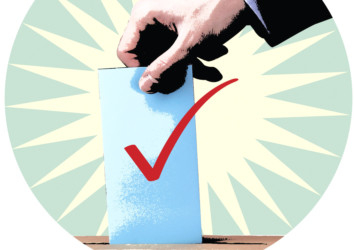
When it comes to Afghanistan, it is sometimes Harry Flashman who said it best. The fictional memoirs of the Victorian adventurer may be best known for his drunken womanising and acts of misunderstood heroism, but they are also infused with a sharp satire on Britain’s imperial hubris, one that resonates in Afghanistan today. Remember his words on arriving in the darkest corner of the British empire in 1842, just at the start of the Afghan uprising: “Kabul might not be Hyde Park, but it was safe for now.” I am frequently reminded of those words in 21st-Century Kabul, a city that has been buffeted once again by a suicide bombing.
For the sentiment at its heart is echoed by western diplomats and commanders as they try to convince us that 12 years of war have been worth the 448 British lives lost, and as they consider the prospects for today’s historic presidential election and for the country after Nato troops go home. In conversation after conversation, it is the same refrain.
Yes, the Taliban may be able to bomb targets in the capital. Yes, the elections will be flawed. Yes, things are far from perfect. But Afghanistan is not Switzerland, or Scandinavia. Things are better than they were 12 years ago. And that is good enough. Last week it was the turn of Lt. General John Lorimer, the most senior British officer in Afghanistan and the deputy commander of the international coalition. “Is it going to be Surrey?” he asked, talking about the chances of a vote free from Taliban violence. “No. But I’m certain that security conditions will be better than they were in 2009.”
He is probably right. So far, Taliban attacks have failed to derail the plans to get 12 million people to the polls. In the past fortnight, suicide squads have shot dead diners at one of Kabul’s best-protected hotels, launched rockets against the election commission’s headquarters and blasted their way into a guesthouse used by foreigners.
The city is on edge. Cafes favoured by journalists and aid workers have shut for fear they may be next on the hit list. But venture outside the capital, away from the Taliban “spectaculars”, and things are quieter. I was able to visit Khost last Monday with minimal fuss. My car took a road past the city’s Blue Mosque, built by Jalaluddin Haqqani, the militant whose Taliban-allied bombers rain destruction on Kabul. Such a visit would have been unthinkable not long ago. The only violence was an almost comical clash between two martial arts clubs as they jostled for position at an election rally for Zalmai Rassoul, Hamid Karzai’s most likely successor as president. More troubling is the prospect of electoral fraud. Last time around, in 2009, more than 1.3 million ballots were rejected by the scrutiny process as fraudulent, on a turnout of 4.5 million. A repeat is unthinkable. These elections have to work. A peaceful transfer of power — the first democratic handover in Afghanistan’s history — would help deliver stability as British troops come home this year.
More importantly, a government accused of fiddling its way into office would give the Taliban a huge victory. The fundamentalists first came to power partly because they offered a system of justice at a time when Afghans had grown tired of corrupt politicians who could no longer be trusted.
A legitimate government in Kabul would deny the Taliban their political oxygen, but to ensure success, the bar is being set low. No one expects a free and fair election. Instead, the talk in chanceries is of “transparent, inclusive and credible”. The point is that this election will be decided not by millions of ordinary Afghans, but by backroom deals with warlords. There will be some ballot stuffing, particularly in areas of the country where insecurity will keep people at home today. And that, it seems, is OK. As one western diplomat puts it: “It won’t be perfect. The important thing is to cement the idea that power is won or lost with elections.” In other words, this is not an election for idealists, but for realists. Their mantra is “Afghanistan good enough”. It may not be good enough for Surrey or Switzerland, runs the argument, but let us take it one step at a time.
The problems with this approach are obvious. It smacks of Flashmanism, the old-fashioned colonial conceit that the natives aren’t ready for western-style democracy. As Daoud Sultanzoy, a fringe candidate, put it recently: “I do not buy this mumbo jumbo that people say: ‘good enough for Afghanistan’. No. We live in the 21st Century. In Afghanistan, or Africa or the US, we are all human beings.”
And there is another problem. If after 12 years, and billions of pounds spent on development, the West cannot deliver a free and fair election, then what will happen next time, when the troops have gone home and the aid has slowed to a trickle? Tolerating the warlords and the ballot-stuffing strongmen may allow Britain to get out this year. But it sends a bleak signal to those Afghans with the courage to face down Taliban threats and cast their vote today.
— The Telegraph Group, Ltd, London, 2014










